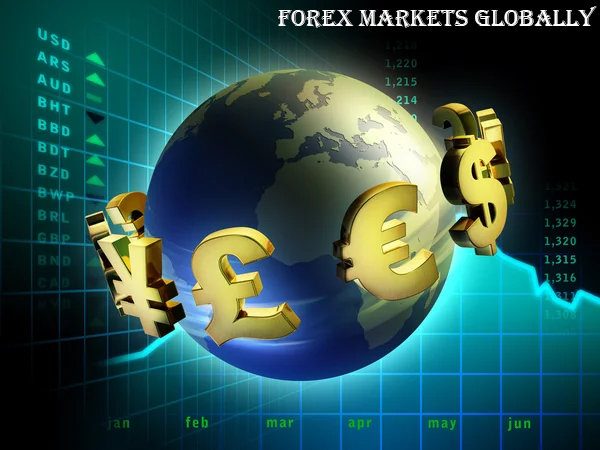Forex trading, or foreign exchange trading, involves the buying and selling of currencies in a decentralized market. As this market continues to grow, one question frequently arises: Is Forex trading legal? Understanding the legality of Forex trading is essential for traders, as it directly influences their trading strategies, safety, and profitability. This article explores the legal frameworks governing Forex trading, the role of regulatory bodies, regional comparisons, and the associated risks of operating in unregulated markets.
Understanding Forex Trading: A Global Overview of Legality

Forex trading is legal in most countries around the world, but there are specific regulations that traders must adhere to. The overarching legality of Forex trading hinges on:
- Country-specific laws: Different countries have unique legal frameworks that govern financial transactions, including Forex trading.
- Regulatory compliance: Traders must operate under regulations set by financial authorities in their respective countries to ensure fair trading practices and protect investors.
While Forex trading is broadly accepted, it is critical for traders to be aware of the laws in their jurisdiction to avoid potential legal issues.
Legal Frameworks: How Different Countries Regulate Forex

Forex trading regulations can vary significantly from one country to another. Here’s an overview of how major economies regulate Forex trading:
- United States: The Commodity Futures Trading Commission (CFTC) and the National Futures Association (NFA) regulate Forex trading. Brokers must register with these entities to operate legally.
- United Kingdom: The Financial Conduct Authority (FCA) oversees Forex brokers, ensuring they comply with strict standards, including capital requirements and customer protection measures.
- European Union: The Markets in Financial Instruments Directive (MiFID) regulates Forex trading within EU member states. Brokers must adhere to strict guidelines regarding transparency and risk disclosure.
- Australia: The Australian Securities and Investments Commission (ASIC) regulates Forex brokers, enforcing compliance with laws designed to protect consumers.
- Japan: The Financial Services Agency (FSA) governs Forex trading, with stringent regulations to maintain market integrity.
The Role of Regulatory Bodies in Forex Trading Legality

Regulatory bodies play a vital role in ensuring that Forex trading remains a secure and fair endeavor. Their responsibilities include:
- Licensing: Regulatory bodies issue licenses to Forex brokers, ensuring they meet minimum capital and operational requirements.
- Monitoring: They monitor trading practices to prevent fraud, manipulation, and other illegal activities.
- Consumer protection: Regulatory agencies protect traders by enforcing rules that require brokers to segregate client funds and provide transparent trading conditions.
By operating with a regulated broker, traders can have confidence in the legitimacy of their trading activities.
Forex Trading Regulations: A Comparative Analysis by Region

To better understand how Forex trading is regulated across the globe, the following table compares key regulatory aspects in various regions:
| Region | Key Regulatory Body | Licensing Requirements | Consumer Protection Measures | Leverage Limits |
|---|---|---|---|---|
| United States | CFTC / NFA | Mandatory registration | Segregated accounts, audits | 50:1 (Retail) |
| United Kingdom | FCA | Must meet capital requirements | Compensation Scheme | 30:1 (Retail) |
| European Union | ESMA | MiFID compliance | Investor protection measures | 30:1 (Retail) |
| Australia | ASIC | Licensing required | Client funds protection | 30:1 (Retail) |
| Japan | FSA | Strict licensing | Insurance for client failure | 25:1 (Retail) |
Understanding the regulatory landscape helps traders make informed decisions when choosing a Forex broker.
Risks of Operating in Unregulated Forex Markets Explained

While Forex trading is legal in many jurisdictions, the risks of operating in unregulated markets cannot be overstated. These risks include:
- Fraud: Unregulated brokers may engage in deceptive practices, such as manipulating prices or withholding funds.
- Lack of recourse: If a trader encounters issues with an unregulated broker, they often have limited legal options to recover losses.
- Market volatility: Unregulated markets can be more susceptible to sudden price swings, increasing the potential for losses.
Traders should always verify a broker’s regulatory status before engaging in Forex trading to mitigate these risks.
Conclusion: Navigating the Legal Landscape of Forex Trading

In conclusion, Forex trading is legal in many parts of the world, but the specific regulations vary significantly by country. Understanding these legal frameworks is crucial for traders to protect themselves and their investments. Engaging with a regulated Forex broker can help ensure compliance with local laws and reduce the risks associated with trading. Always do thorough research and consider consulting a legal expert if you are unsure about the regulations that apply to your specific situation.
Frequently Asked Questions (FAQ)
1. Is Forex trading legal in the US?
Yes, Forex trading is legal in the US, but traders must use brokers registered with the CFTC and NFA.
2. What is the maximum leverage allowed in Forex trading?
Leverage limits vary by region; for instance, in the US, the maximum leverage for retail traders is 50:1, while in the EU, it is 30:1.
3. How can I find out if a Forex broker is regulated?
You can check a broker’s regulatory status on the official websites of relevant regulatory bodies, such as the CFTC, FCA, or ASIC.
4. What are the risks of trading with an unregulated broker?
Risks include the potential for fraud, lack of legal recourse, and exposure to unregulated market volatility.
5. Can I trade Forex from any country?
Forex trading is generally permissible, but certain countries may have restrictions or prohibitions. Always check local laws before trading.
6. What should I look for in a regulated Forex broker?
Look for brokers with a solid regulatory background, transparent fees, positive reviews, and robust consumer protection measures.
7. Are there taxes on Forex trading profits?
Yes, Forex trading profits are typically subject to taxation, but the specific tax implications can vary by country. It’s advisable to consult a tax professional for personalized advice.




10 Comments
Different countries have different rules about Forex trading.
‘Segregated accounts’ are a good safety measure for traders.
It’s good to know that regulatory bodies help protect traders.
Forex trading is legal in many countries, but we must check local laws.
I learned that the US has strict regulations for Forex brokers.
It’s important to choose a regulated broker to avoid fraud risks.
‘CFTC and NFA’ keep Forex trading safe in the USA!
‘Consumer protection measures’ are essential for safe trading!
‘Market volatility’ can really affect unregulated trading environments.
‘Leverage limits’ are crucial to understand when trading Forex.